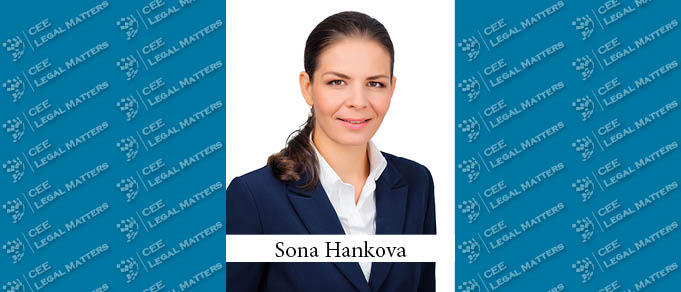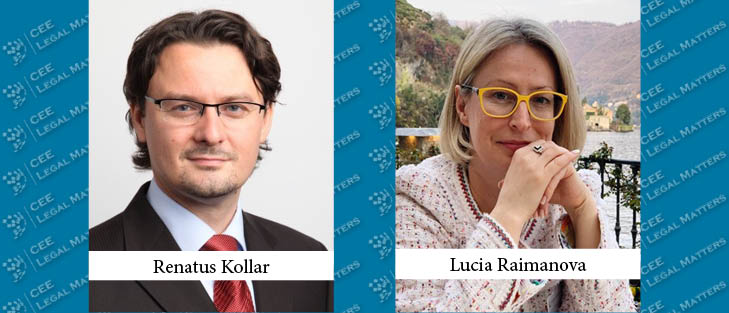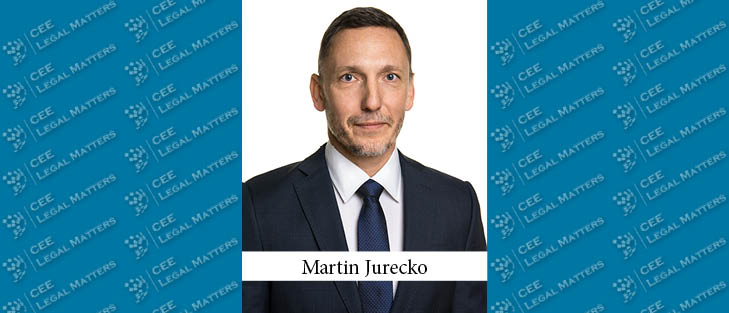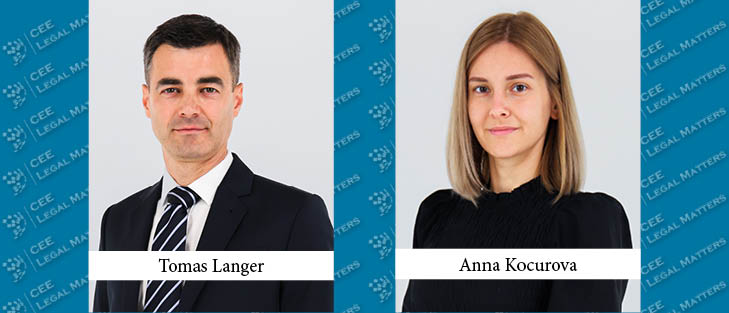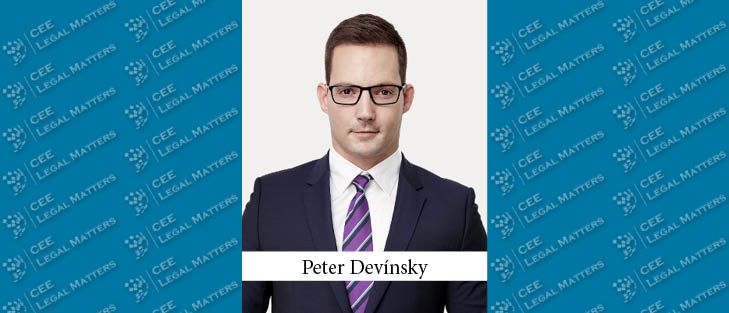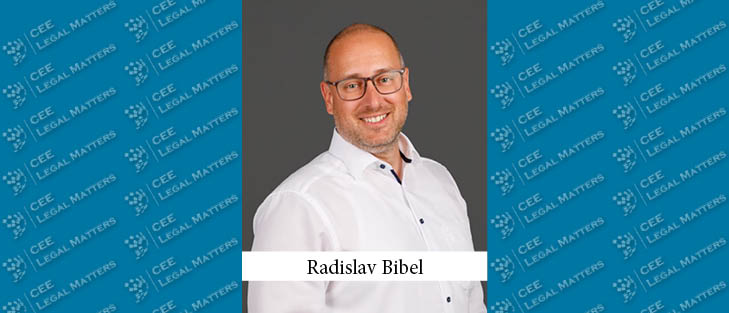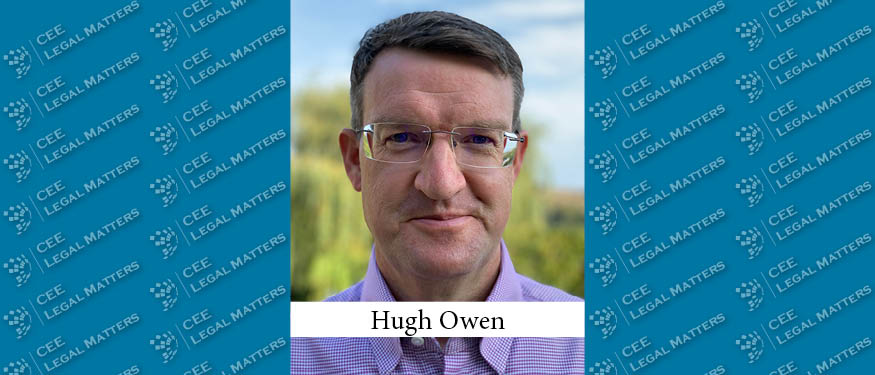Kocian Solc Balastik and Nitschneider & Partners have advised the Seyfor Group on its acquisition of NCC from its founders. Zahradnik reportedly advised the sellers.
Slovakia Trying To Consolidate Its Books: A Buzz Interview with Sona Hankova of CMS
A tax reform, updated labor costs, and ESG compliance challenges are some of the main challenges facing businesses in Slovakia at the moment, according to CMS Partner Sona Hankova.
Rowan Legal, Erdos Partners, Biris Goran, and HKV Announce Horizons Alliance
Former NGL Symbio alliance founding members Rowan Legal, Erdos Partners, Biris Goran, and HKV have announced a new set-up under the Horizons Alliance brand.
Renatus Kollar and Lucia Raimanova Appointed Co-Managing Partners of A&O Shearman Bratislava Office
Renatus Kollar and Lucia Raimanova have been appointed as Co-Managing Partners of A&O Shearman's Bratislava Office.
Martin Jurecko Joins CMS Bratislava as Partner
Martin Jurecko has joined CMS as a Partner in its Bratislava office's Real Estate practice.
Tomas Langer Joins Ments as Dispute Resolution Practice Head in Slovakia
Ments has launched a new Dispute Resolution practice in Slovakia with the addition of Counsel Tomas Langer and Associate Anna Kocurova.
Tough Times Ahead for Slovak Employers?
In recent weeks, the Slovak Parliament has approved two laws that could substantially increase labour costs for employers in Slovakia. One amendment to the Minimum Wage Act raises the automatic determination rate of the minimum wage, while another introduces a new contribution to cover sports activities for employees' children.
Changes in Value Added Tax Rates in Slovakia
The National Council of the Slovak Republic has recently approved significant changes to the Value Added Tax (VAT) rates, which will come into effect as of January 1, 2025. Here are the key updates:
Closing: E&'s Acquisition of PPF Telecom Bulgarian, Hungarian, Serbian, and Slovakian Assets Now Closed
On October 25, 2024, White & Case has announced that E&'s acquisition of PPF Telecom Bulgarian, Hungarian, Serbian, and Slovakian assets (as reported by CEE Legal Matters on August 9, 2023) has now closed.
New Transactions Tax in Slovakia from 2025
From 1 April 2025, Slovakia will introduce a new financial transactions tax (daň z finančných transakcií) as part of the government´s consolidation package. This is not an early April fools' day joke.
Dentons, E+H, Kinstellar, and A&O Shearman Advise on EUR 290 Million Financing to Tatry Mountain Resorts
Dentons, working with E+H, has advised a club of senior lenders, led by Tatra Banka as the global coordinator, on financing for Tatry Mountain Resorts consisting of a EUR 180 million senior facility and a EUR 110 million junior facility. Kinstellar advised J&T Banka as the junior lender. A&O Shearman advised Tatry Mountain Resorts.
A CEE Comparison Guide on Medical Devices Advertising: An Interview with DLA Piper’s Life Sciences Team
Earlier in 2024, DLA Piper published its Medical Devices Advertising: CEE Comparison Guide, which reviews advertising regulations for medical devices in Austria, Croatia, the Czech Republic, Hungary, Poland, Romania, Slovakia, and Slovenia. Life sciences team members who worked on the guide spoke with CEE Legal Matters about some of the regulatory differences across CEE and the practical implications for businesses.
Taylor Wessing Advises FLE on Forest Acquisition in Slovakia
Taylor Wessing has advised FLE on its investment and acquisition of a 620-hectare forest in Eastern Slovakia. Bohunicky & Co reportedly advised the undisclosed sellers.
Hugh Owen Joins Kinstellar as Partner
Former PwC CEE Head of Legal Business Solutions Hugh Owen has joined Kinstellar as Partner.
Kinstellar, AK KB, and Rybanova & Partners Advise on MEREP's Acquisition of 50% Ownership in OC Point Liptovsky Mikulas
Kinstellar has advised Mitiska European Real Estate Partners 3 on the acquisition of a 50% ownership interest in OP Centrum Retail 2 from OPC Group. AK KB and Rybanova & Partners advised OPC Group.
White & Case Advises on EUR 500 million Mortgage Covered Bonds Issuance by UniCredit
White & Case has advised joint lead managers Commerzbank, Danske Bank, DZ BANK, Erste Group Bank, Raiffeisen Bank International, and UniCredit Bank on the issuance of EUR 500 million 2.875% mortgage-covered bonds due 2029 under the EUR 10 billion mortgage-covered bond program of UniCredit Bank Czech Republic and Slovakia.
Peter Ruzicka and Peter Bartos Become Equity Partners at Ruzicka and Partners
Ruzicka and Partners has announced the expansion of its circle of Equity Partners with the addition of Peter Ruzicka and Peter Bartos.
Dentons, Gunar, and BDO Advise on JTRE Sports & Entertainment's Acquisition of HC Slovan Bratislava
Dentons has advised JTRE Sports & Entertainment on its acquisition of HC Slovan Bratislava from Elena Hruba, Pavel Hofstaedter, and Eduard Janosik. Gunar Legal & Partners and BDO Legal advised the sellers.


